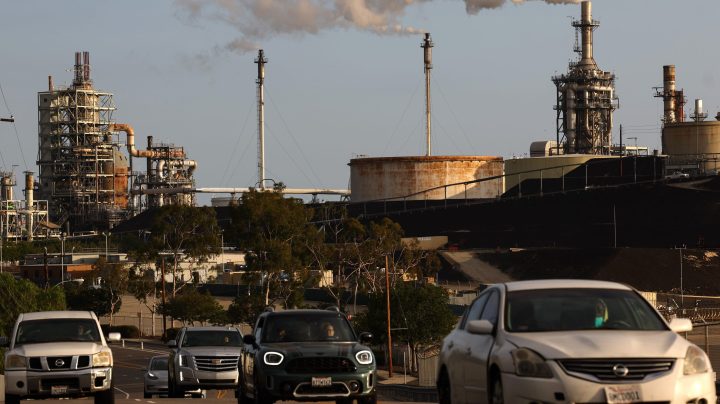
Why the U.S. is a spoiler for OPEC’s plan to raise oil prices
Why the U.S. is a spoiler for OPEC’s plan to raise oil prices

The Organization of the Petroleum Exporting Countries — the cartel also known as OPEC — has been working with allies to cut production this year. It’s all part of their effort to bolster global oil prices.
And while prices are up over the last week, they are down around 10% since the beginning of the year. Some of the reasons for that can be found here at home.
OPEC hasn’t been able to exert more control over oil prices partly because of competition from the U.S., said Mark Finley, a fellow at Rice University’s Baker Institute.
“The United States, on the back of the shale revolution, has become the biggest producer of oil in the world,” Finley said.
Number one — bigger even than Saudi Arabia, the de facto leader of OPEC.
And this year?
“U.S. production has been surprisingly strong,” he said.
Production has been up more than 9% through April compared to a year earlier and on pace to set an annual record.
And after Russia invaded Ukraine, the Biden administration released record volumes from the nation’s Strategic Petroleum Reserve.
So there’s just a lot more oil out in the world right now, said Euan Craik, President of Petroleum Markets at the consultancy Argus Media.
“You’ve got 450 million — thereabouts — barrels of oil that’ve been added to the global supply chain, which is quite a lot actually,” Craik said.
And that’s helped blunt the impact of OPEC’s moves.
There’s a lot happening in the world. Through it all, Marketplace is here for you.
You rely on Marketplace to break down the world’s events and tell you how it affects you in a fact-based, approachable way. We rely on your financial support to keep making that possible.
Your donation today powers the independent journalism that you rely on. For just $5/month, you can help sustain Marketplace so we can keep reporting on the things that matter to you.











